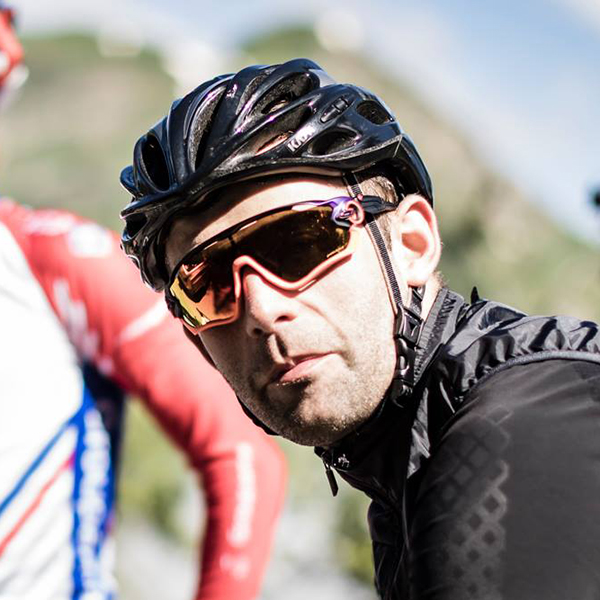Colnago's Y1Rs aero bike launched into the world in December 2024 and turned many heads with its radical looks.
It has been used by Tadej Pogačar and UAE Emirates - XRG for some flatter races this season, although the majority of Pogačar's (and his teammates') major wins up until the Tour of Flanders have been taken aboard the V4Rs and, latterly, the V5Rs all-rounder.
That said, Colnago claimed the Y1Rs to be the fastest bike in the pro peloton at launch, but it certainly seems that the old adage, ‘horses for courses’ would apply here.
We’ve now got the Y1Rs in for testing, though, and we can’t wait to find out just how quick it feels.
Maximising UCI regulations

As we reported when we got hands-on with one of the first production bikes in full Pogačar garb, the Y1Rs was designed to be just as stiff as the old V4Rs all-rounder, but 20 watts faster than the all-rounder at 50kph with a block headwind.
We now know, of course, that the V5Rs was developed at the same time as the Y1Rs, using the same wind-tunnel session to validate that bike’s lab performance.
Colnago said the “best competitor” (i.e. the best aero bike it tested) was 1 watt slower than the Y1Rs in these conditions, although it declined to confirm which bike it was referring to.

The Y1Rs’ tube profiles were also designed to take advantage of the ‘sailing effect’, whereby relative drag decreases with higher yaw angles. According to Colnago’s published data, drag increases from 2.5-5 degrees yaw, before dropping off steadily between 5-10 degrees.
Naturally, these were designed with the latest 8:1 regulations in mind (previously, bike frame tubes had to be designed within a 3:1 ratio for depth and width).

This gave rise to the deep head tube – which has since been dwarfed by the Ridley Noah Fast – plus the innovative seat tube design.
The bottom section shrouds the rear wheel, but then deviates forward before the seatpost's insertion point. This effectively lengthens the tube’s length chord, helping to manage airflow more efficiently, but is also said to provide greater compliance through the saddle.
Whether the Y1Rs is a ‘comfortable’ aero bike remains to be seen – it’s entirely possible that the compliance afforded by the kinked design simply compensates for rigidity in other parts of the frame.

Remember, Pogačar had the bike available for the 2025 Paris-Roubaix, but chose instead to give the V4Rs its swansong, finishing in second place on the cobbles, even though he’d have known the Y1Rs was claimed to be 3.5 per cent stiffer for high-powered out-of-the-saddle efforts.
The design also enables the position of the rider to be pushed forward, pitched steeper over the bottom bracket. This is known to open the hip angle and – for many riders – help generate more power through the cranks.
Pogačar himself is known for his forward-leaning stance, even if he tends not to adopt the conventionally aggressive on-hood aerodynamic position.
| Geometry | XS | S | M | L | XL |
|---|---|---|---|---|---|
| Seat Tube Angle (Ss°) | 70.8 | 71.9 | 73.0 | 73.5 | 73.5 |
| Seat Clamp Angle (Sc°) | 75.0 | 74.5 | 74.0 | 73.7 | 73.0 |
| Reach (mm) | 368.0 | 377.0 | 386.0 | 395.0 | 404.0 |
| Stack (mm) | 495.0 | 520.0 | 540.0 | 565.0 | 590.0 |
| Fork Length (mm) | 376.5 | 376.5 | 376.5 | 376.5 | 376.5 |
| Rake (mm) | 55.0 | 49.5 | 45.0 | 42.5 | 42.5 |
| Trail (mm)* | 61.0 | 59.5 | 57.5 | 57.0 | 57.0 |
| Headtube Length (Hs) | 88.5 | 108.5 | 126.5 | 150.5 | 176.5 |
| Chainstay Length (C) | 408.0 | 408.0 | 408.0 | 408.0 | 408.0 |
| Front-Centre (A) | 577.5 | 579.5 | 581.0 | 590.0 | 606.0 |
| BB Drop (mm) | 74.0 | 74.0 | 72.0 | 72.0 | 72.0 |
Imitation as the best form of flattery?

It can’t be by chance that two key elements of the design are reminiscent of the Cervélo S5, the aero bike Jonas Vingegaard and his Visma–Lease a Bike team will have use of at the Tour.
The V-shaped cockpit offers a significant stem rise to the tops, creating the bottom half of the basic diamond shape the S5 cockpit uses.

Likewise, the head tube is hinged, the front face (which is joined to the broad fork legs) turning independently of the frame’s head tube behind it.
The fork legs also extend significantly beyond the thru-axle, designed to manage airflow more effectively before the rider’s legs pass through it, and the bottle cages are partially recessed into the down tube and seat tube, similar to the BMC Teammachine R.

Bearing in mind that the Teammachine R is one of the fastest-feeling bikes I’ve ever tested, I’m keen to see how the Y1Rs stacks up.
Colnago Y1Rs test bike specifications

My test bike features a Shimano Dura-Ace Di2 R9200 groupset, albeit without a power meter – something many potential customers might consider a necessity.
The wheels are Vision’s mid-range SC45s, fitted with Pirelli P Zero Race TLR tyres, with a Prologo Scratch M5 saddle.





